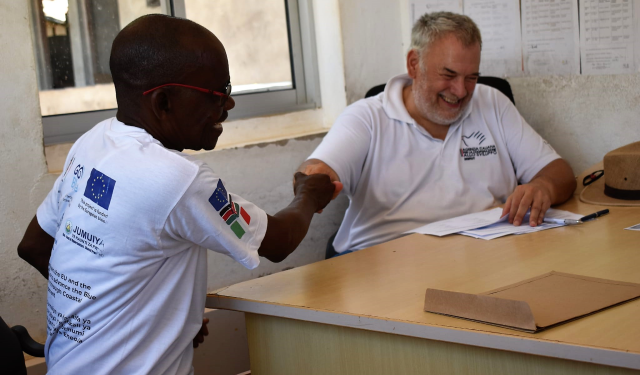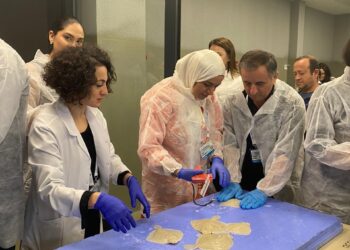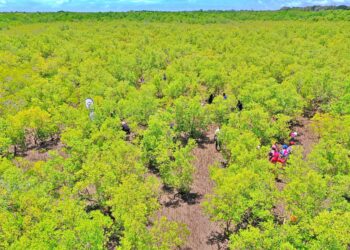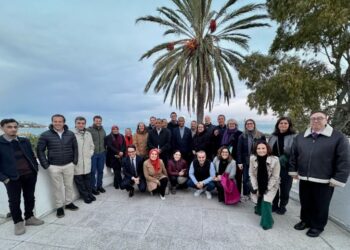Go Blue: Italian Agency for Development Cooperation (AICS) ready to deliver boats throughout the coastal counties – During the months of March and April 2023, nine Beach Management Units (BMUs) located across five coastal counties in Kenya will receive a total of 26 fiberglass boats, that will allow them to boost their catches and increase related income. The provision of fishing inputs, including boats and fishing equipment, is one of the core activities within the Italian component of the EU-funded Go Blue Programme, implemented by the Italian Agency for Development Cooperation (Aics) in a technical partnership with the Mediterranean Agronomic Institute of Bari (CIHEAM Bari).
Promoting the enhancement of fisheries co-management and of the fisheries value chain is one of the key objectives of the initiative, which stems from the recognition of the great potential that the blue economy has for the growth of Kenya. Fishery is in fact identified by the Kenyan Government as a sector with significant potential to spur national economic growth in its key economic blueprint, the Vision 2030.
The lack of adequate equipment represents one of the major constraints affecting small-scale fisheries in Kenya: due to the lack of owned boats, fishermen are generally obliged to pay a rental to use equipment from middlemen, sometimes at very high prices. In addition to that, fishermen have to cover the costs of fuel. These expenses clearly impact the revenues deriving from fishing.
Italian component of the Go Blue Programme aims to enhance small-scale fishery value chain through targeted interventions
With the ambitious objective of improving the small-scale fishery value chain at all levels, with special attention to the cold chain management, the Italian component of the Go Blue Programme is targeting the most challenging phases of the value chain, from the moment of capture, through the provision of boats, cool boxes and equipment, through the collection points, with the provision of cold storage facilities, access to clean water and cold rooms to ensure correct conservation of products, to the retail phase, by providing street vendors with cool boxes to ensure fish is well preserved under cold conditions. Aics is also working with the County Government of Lamu and Mombasa counties to build two fish markets that will ensure that target BMUs have improved access to markets. The infrastructure will be built in strategic areas to serve as agents of change and boost the development of the fishery value chain.
‘Our component is very ambitious, and we have designed it in a way that the multiple challenges currently affecting the small-scale fishery value chain can be addressed through a set of targeted and different interventions’ says Paolo Damato, component lead of the Italian intervention within the Go Blue Programme. ‘These actions range from the construction of infrastructure as enablers of change, to the provision of fishing inputs, from the introduction of improvement across the cold chain, to the realization of training activities for fishermen.’
Aics collaborates with local stakeholders to promote sustainability in Kenya’s blue economy
In a view of ensuring sustainability, Aics is also working with CIHEAM Bari and the Jumuiya Ya Kaunti Za Pwani (JKP Secretariat), the local stakeholder, a mechanism to ensure that the boats delivered to BMUs can be managed through a sort of revolving fund where boats can generate a capital managed by the BMU to allow fishermen to acquire additional boats.
‘The blue economy is a driving factor of Kenya’s development policy and a sector where the Italian Agency for Development Cooperation is planning to invest more in the future’,
says Mr. Giovanni Grandi, Head of Aics regional Office in Nairobi. ‘
It is our responsibility to use the blue economy in the most sustainable way while capitalizing its positive impacts on food security, healthy diets, environmental sustainability, and women empowerment. We stand by Kenya in putting small-scale actors at the heart of blue economy policies: our aim is to ensure that the community-led Beach Management Units established by the Government of Kenya are put in the position to adequately manage the ocean and its resources.’
The Italian component of the Go Blue Programme can build on the existing similarities between Italy and Kenya regarding the blue economy utilization and the efforts both countries are putting in place to ensure a sustainable use of the coastal resources and ecosystems: both countries have long coastlines, and both invest in significant economic activities related to the blue economy, such as fisheries, aquaculture, and tourism. The countries have developed policies and initiatives to promote the sustainable use of blue economy resources and to support the growth of related industries; the Go Blue Programme opens great opportunities to capitalize best practices and experiences from both countries to ensure shared lessons learnt and development.
Go Blue: Italian Agency for Development Cooperation (AICS) ready to deliver boats throughout the coastal counties









